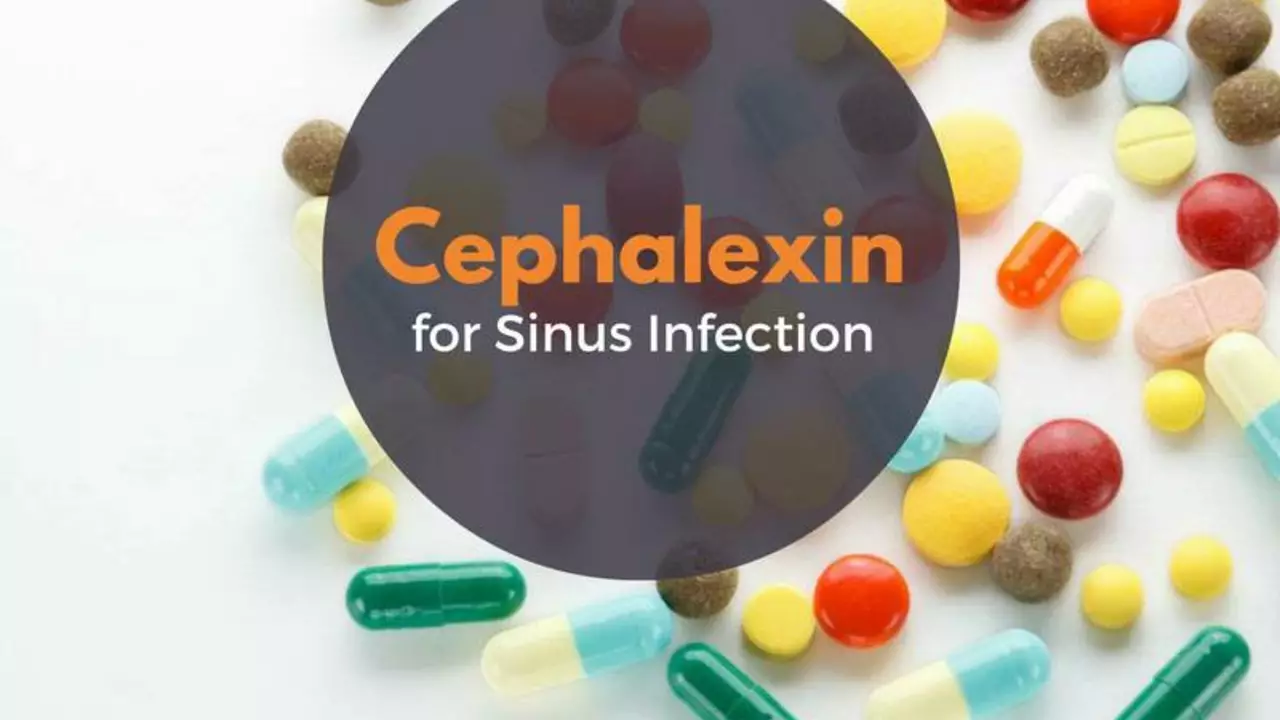Understanding Cephalexin: An Antibiotic Ally
Hold onto your hats, folks! We're going for a deep dive into the wild world of antibiotics, specifically Cephalexin. You might remember it from such adventures as "That Time You Had Strep Throat," or perhaps "The Great Urinary Tract Infection of 2022." Cephalexin is a first-generation cephalosporin, a type of antibiotic that's often prescribed to deal with bacterial infections. And anyone versatile enough to fight both Gram-positive and Gram-negative bacteria is worth getting to know a little better.
But like all medication, it generates side effects. Now, don't go running scared from our buddy Cephalexin just yet though. I'm not talking Chestbursters-a-la-Aliens here (phew, what a relief, right?). These side effects can range right from mild and innocuous, like a little bout of diarrhea, to more severe reactions, although these are rare. Knowing what to expect can help you deal with any potential side effects and help ensure a more smooth-sailing healing process.
Common Side Effects of Cephalexin: Friendly Fire from Your Pharmaceutical Foe
Most of the time, side effects of Cephalexin are more akin to having an overly enthusiastic party guest than a marauding monster. They’re generally mild and tend to disappear as your body adjusts to the medication. Some common ones that you might encounter include diarrhea, nausea, vomiting, abdominal pain, a rash, or some good ol' fashioned fatigue. I mean, dealing with an infection is hard work after all, making Cephalexin-induced fatigue just par for the course.
But don’t let these toasty tidbits of terror petrify you. Should these side effects persist or become too much of a nuisance, you don’t have to go it alone! Contact your healthcare professional. There’s no shame in calling for backup. These guys are professionals and can guide you through the situation, making adjustments to your treatment plan if necessary. We’re all a team in this game of human health, after all!
Serious Side Effects of Cephalexin: When the Going Gets Tough
Occasionally, Cephalexin might decide to amp up the party antics. Serious side effects are less common but can be more severe. They might include complications like severe stomach pain, persistent nausea or vomiting, easy bruising or bleeding, or a new sign of infection (such as fever, persistent sore throat), dark urine, or yellowing eyes/skin.
In rare instances, this medication has even caused serious intestinal conditions due to a type of resistant bacteria. Symptoms such as persistent diarrhea, abdominal or stomach pain/cramping, or blood/mucus in your stool should be reported immediately.
And as always, seek immediate medical attention if you notice any symptoms of a serious allergic reaction, including rash, itching/swelling (especially of the face/tongue/throat), severe dizziness, or trouble breathing. But remember, this is all worst-case-scenario kind of stuff. Most people use Cephalexin without these serious side effects. After all, it’s a trusted sergeant in our antibiotic army!
Hitting the Allergic Reaction Jackpot: Rare but Real
Very rarely, like getting struck by lightning while playing the bagpipes rare, Cephalexin might cause an extreme allergic reaction. We're talking about things like hives, difficulty breathing, swelling of your face, lips, tongue, or throat. If you experience these symptoms, you need to seek immediate medical help. This is not a drill!
But let’s balance out the scare factor here. Remember how "rare" this is. As in, not often. But, just like those lottery numbers have to come up for someone eventually, this rare allergic response also happens. Being aware and having an action plan in place is the best way to effectively deal with this situation if it occurs.
Now, as promised, here's a fun, albeit a slightly embarrassing, story related to our antibiotic friend Cephalexin. My Felix, that's my Maine Coon by the way, developed an infected wound a while back. The vet prescribed Cephalexin for Felix, and I, good pet owner that I am, promptly began the treatment. Shortly after that, Felix started turning his nose up at his favorite sardines. I was puzzled initially - Felix loves fish! Turns out, it was a side effect of the antibiotic. A few days later, Felix was back to his fish-loving self. Yes, even pets can experience Cephalexin side effects!
Staying Vigilant with Cephalexin: Know Your Medication
Now, I hope you haven’t been scared off antibiotics for life. Remember, the chances of severe side effects and allergies are relatively low. The key is to keep the lines of communication open with your healthcare professional, because they’re your best resource in managing and alleviating these potential issues.
Cephalexin, like any medication, can have side effects. But it’s not about living in fear. It’s about knowing what’s possible so you can be prepared, maintain a dialogue with your doctor, and ultimately bounce back to health. After all, our bodies are surprisingly resilient. And equipped with this knowledge, you are too.
Remember, each step along this journey of understanding is like Sparky, my Border Collie, herding us towards a healthier future. So let’s continue the work and keep those nasty infections at bay!



14 Comments
S Love
August 3, 2023 AT 22:10Cephalexin saved my life after that nasty post-surgery infection. Mild stomach upset for a couple days, then boom - back to normal. Always follow up with your doc, but don't let fear stop you from taking what you need.
Pritesh Mehta
August 4, 2023 AT 21:52One must consider the ontological weight of pharmaceutical intervention in the anthropocene. Cephalexin, as a synthetic artifact of Western biopower, imposes a Cartesian rupture upon the natural microbiome - a colonial act disguised as healing. The diarrhea? Merely the gut's quiet rebellion.
Billy Tiger
August 5, 2023 AT 03:01People freak out over diarrhea like its the end of the world I mean cmon its just poop you dont need a therapist for that
Katie Ring
August 6, 2023 AT 12:36The real issue isn't the side effects - it's how we've been trained to fear medicine instead of partnering with it. We treat antibiotics like magic bullets, not tools. That mindset is what gets people hurt, not the drug itself.
Adarsha Foundation
August 8, 2023 AT 12:15I appreciate the balanced tone here. In India, many avoid antibiotics due to misinformation. This kind of clear, compassionate explanation helps bridge the gap between science and public understanding.
Alex Sherman
August 8, 2023 AT 18:58You mention Felix the cat like it's some endearing anecdote, but have you considered the ethical implications of giving human-grade antibiotics to pets without proper veterinary oversight? This is irresponsible pet parenting disguised as charm.
Oliver Myers
August 10, 2023 AT 16:02Hey, just wanted to say - thank you for writing this so clearly! I was nervous about starting cephalexin after my last infection, but this made me feel way more confident. Also, Felix sounds like a total goofball. Cats are the best.
Side note: I took mine with food and had zero nausea. Just a little sleepy, which honestly? I needed that.
John Concepcion
August 12, 2023 AT 06:20Oh wow you actually believe this stuff? The FDA's just pushing pharma profits. Diarrhea? That's your gut microbiome detoxing from corporate poison. You're being programmed to trust pills instead of your own body. Wake up.
Caitlin Stewart
August 13, 2023 AT 05:18I'm glad you mentioned the pet story. My dog had the same thing - lost her appetite for a few days. I thought she was just being dramatic. Turns out, it's common. Took her off it for 24 hours, then restarted slowly. She's fine now. Just watch your little ones.
Emmalee Amthor
August 14, 2023 AT 20:55I think people forget that side effects are the body's way of telling you its working not failing. Cephalexin is basically a tiny army marching through your system. Of course there's chaos. The real question is - are you letting fear silence your body's signals?
Leslie Schnack
August 15, 2023 AT 00:00Has anyone here had a yeast infection after cephalexin? I got one after my last round and didn't realize it was related until weeks later. Just a heads-up for anyone else - if you're itchy down there, it might not be a UTI coming back.
Saumyata Tiwari
August 15, 2023 AT 13:14This is typical American medical propaganda. In India, we use Ayurveda and traditional herbs. Why do you blindly accept Western drugs when our ancestors knew better? This is cultural surrender.
Anthony Tong
August 17, 2023 AT 00:47Cephalexin is a Trojan horse. The CDC and Big Pharma are using it to lower our immune response over time. They want us dependent. Look at the rise in antibiotic resistance - it’s not an accident. It’s a business model. And your cat? Probably a test subject.
Roy Scorer
August 18, 2023 AT 03:33You say 'don't live in fear' but you also describe every worst-case scenario in vivid, dramatic detail. That’s not education - that’s emotional manipulation. You're selling anxiety wrapped in a bow. People don't need more fear. They need trust - in themselves, in their doctors, in the natural order.